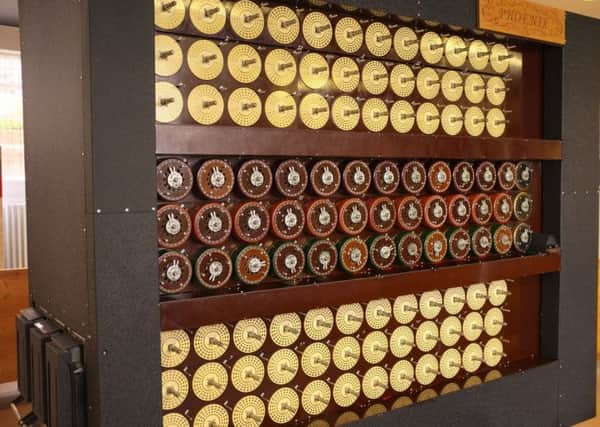Bombe Crowdfunder raises £60k to keep the Bombe on the Bletchley Park Estate


Commissioning the creation for the new Bombe Gallery is now underway. Planned to open this summer, the gallery will be located close to the existing world-famous Colossus Gallery.
Together these two displays will explore the ingenuity and inventiveness of the Second World War codebreakers - and the beginnings of our digital world.
Advertisement
Hide AdAdvertisement
Hide AdThe Turing-Welchman Bombe accelerated the breaking of Enigma-enciphered messages revealing enemy operations. Colossus, created by a team led by Tommy Flowers, sped up the deciphering of Lorenz strategic messages of Hitler and his German High Command.
Andrew Herbert, chair of trustees at The National Museum of Computing, said: “The generosity of the Crowdfunder donors has astonished us. As an organisation that is reliant solely on sales and voluntary donations for income, we initially thought that the £50,000 target, although necessary, might be too ambitious. We continue to receive off-Crowdfunder donations, but we already know that we have exceeded our target by £10,000.
“The messages of support we have received from donors are also inspiring and motivating. It’s clear that the public understand and appreciate what we strive to do in presenting dynamic displays about the development of computing from its earliest days.”
“We warmly thank everyone who made the Bombe Crowdfunder such a resounding success. Trustees, staff and our highly skilled volunteer force now relish the prospect of telling even more of the stories of the people and the machines that changed our world. By conserving our digital heritage, we aim to engage and inspire students, computing professionals and the general public from across the world.”